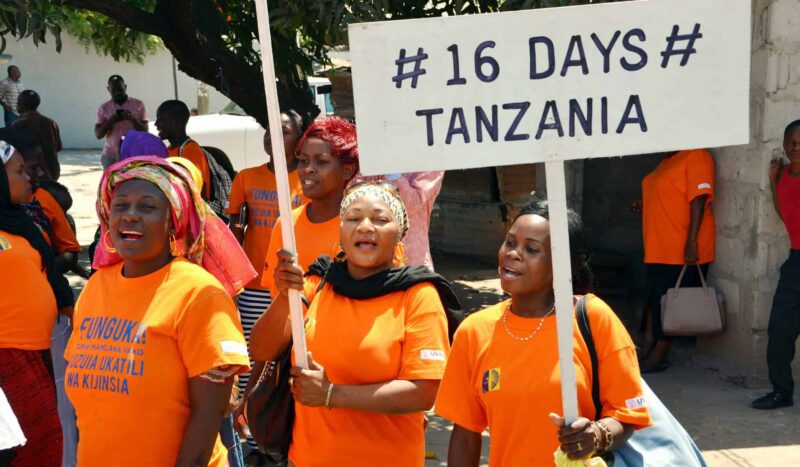Ground-breaking reporting by a journalist shed light on the problem of sexual and gender-based violence in Tanzania and helped survivors to seek justice.
Workshop prompts reporting on GBV
Mussa Juma, a reporter at Mwananchi newspaper in Dar es Salaam, participated in an Internews training about reporting on gender-based violence. “Before, I was aware of sexual and gender-based violence but to be honest, I did not really pay it much attention,” he said. “I preferred politics, because the stories were popular, my sources were easy to find and would sometimes give me small gifts. But my perspective has changed.”
Mussa says he was shocked to learn just how many incidents of gender violence go unreported and how many perpetrators would never be punished. “For the first time, I met survivors who were willing to talk to me. I interviewed them at length. Their shocking stories were published. It was my first report on gender violence.”
But it would not be Mussa’s last. Local people and council staff read the ground-breaking report then told Mussa about other survivors.
A mother gets some justice for her son
One of those survivors was Mwahija Ramadhan’s (not her real name) six-year-old son. She had hired a local motorcyclist to pick her son from school. What she didn’t know is that the man was using that opportunity to sodomize her son and give him little gifts so that he wouldn’t share the story with his parents.
“When I was bathing my son, I saw some bruises in his private parts. I asked him gently and he said the driver always give him candies and penetrate him in nearby bushes. I nearly fainted.”
Mwaija said she cried a lot and sought help from different people. She said she remember seeing the perpetrator moving free after a week. A friend who had read Mussa’s reporting connected him with Mwaija. Mussa put her in touch with the regional police commander and now the case is in court.
Local reporting gets the local community involved
He says involvement by the community helped a lot. “I’ve now established strong connections with the local police gender desk, whose officers help me to find survivors. The more stories my newspaper publishes, the more survivors call me for help. I’ve been able to help many of them. Also, several of their attackers are now in the hands of the law. My reporting skills are sharper these days and my editor commends my hard work.”
Mussa says he focused on urban areas at first, but now he sees the importance of looking farther afield to remote, rural communities. He just hopes more journalists will report on gender violence. “If they do, then perpetrators will have no place to hide, and the number of cases might drop.”
Mussa believes that the issue deserves a higher quality and quantity of coverage so that survivors will be encouraged to come forward. “Many women do not want to tell anyone what happened because perpetrators are often members of their family or the community. But it’s vital that they come forward, so their attackers are dealt with and will face justice.”
Boresha Habari is a five-year media and civil society strengthening program implemented by Internews in Tanzania and funded by the United States Agency for International Development (USAID).
